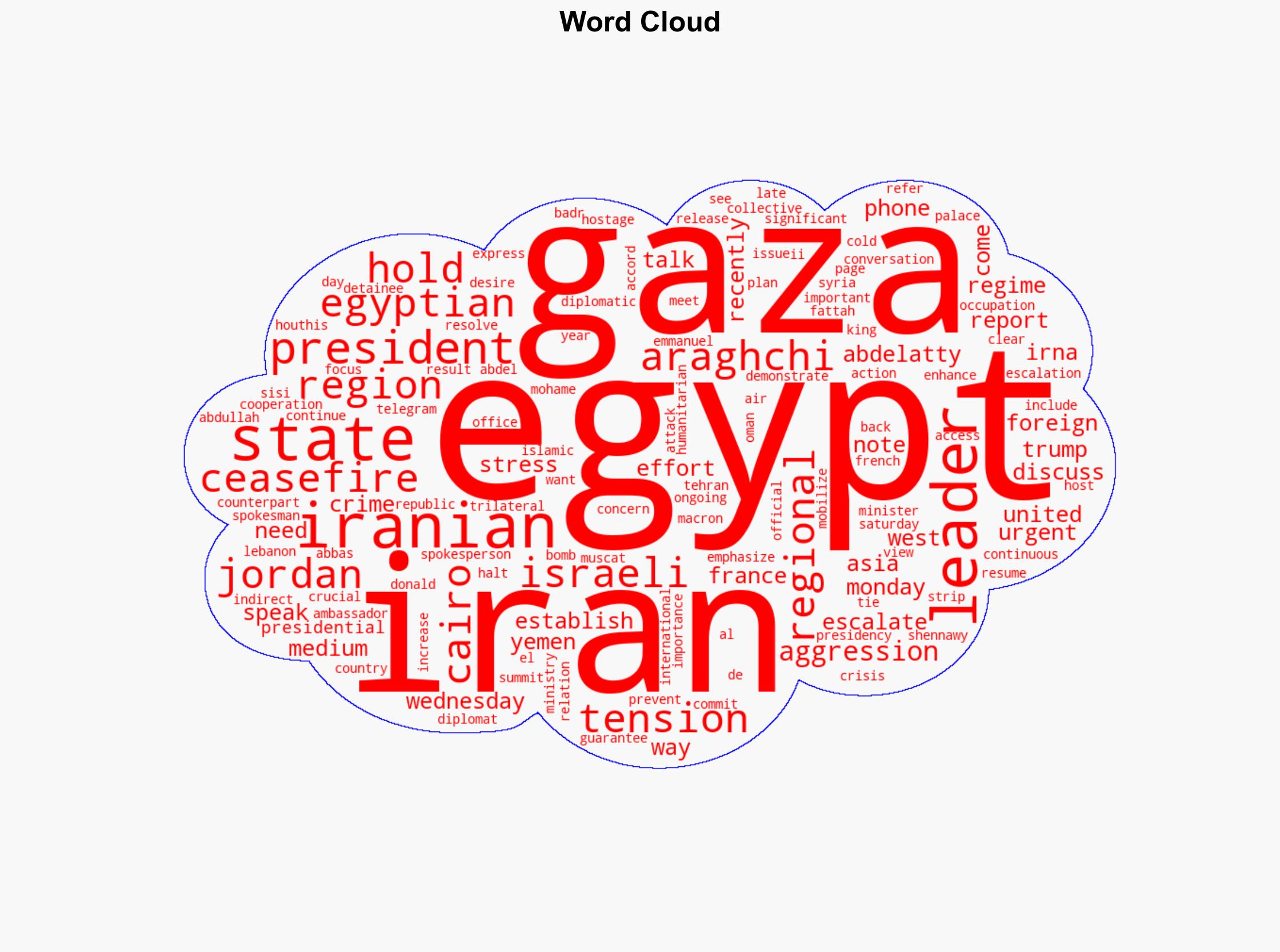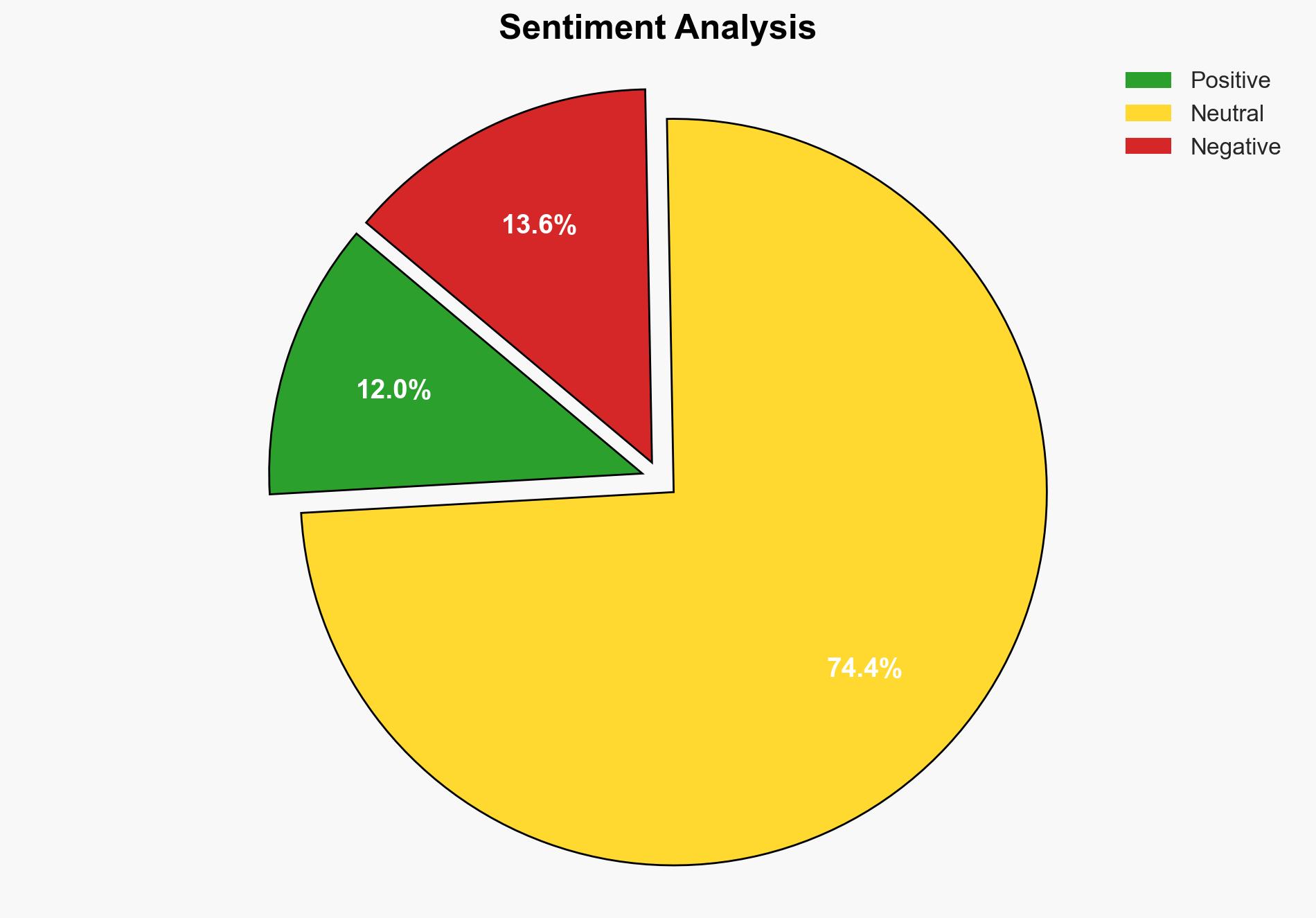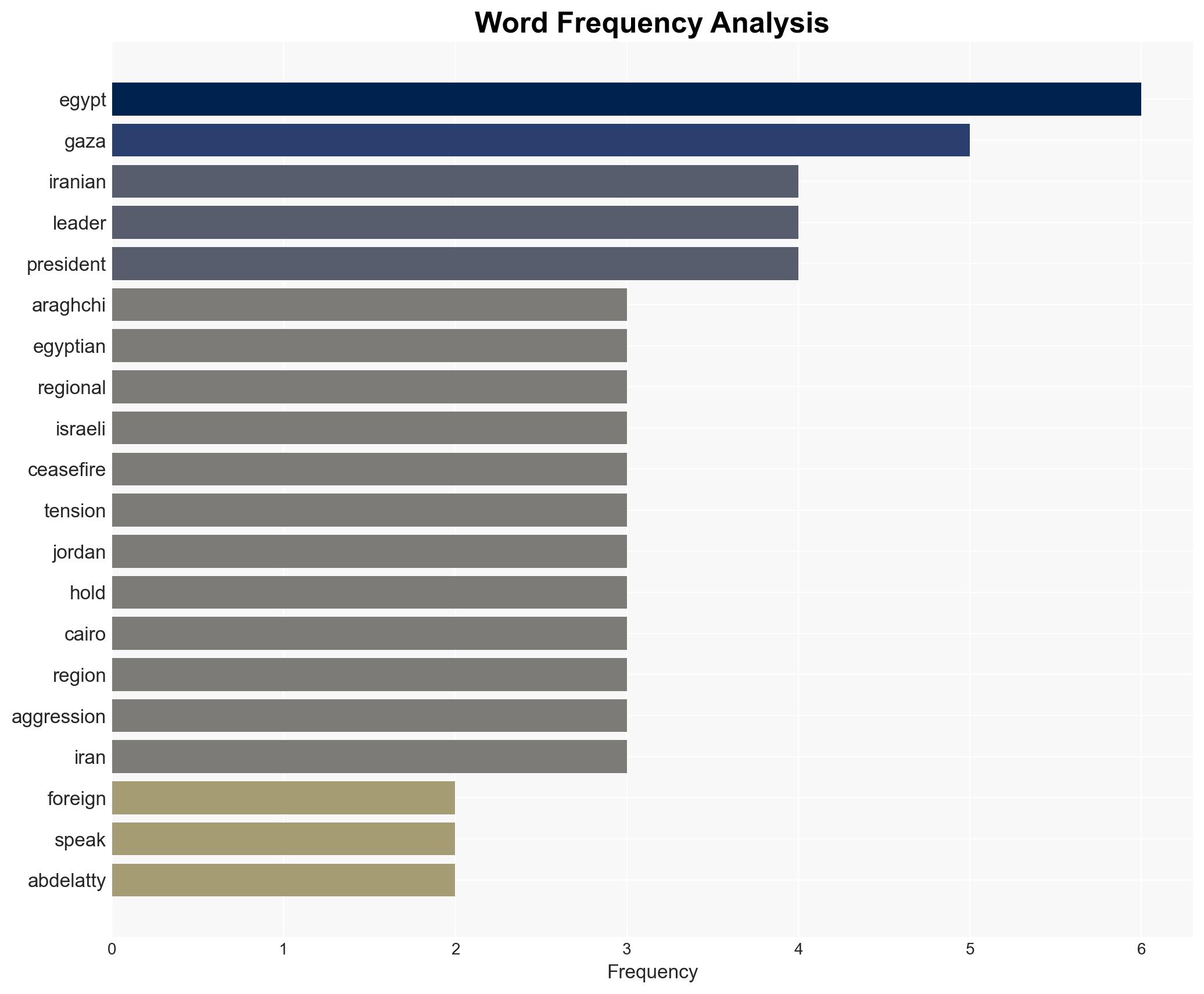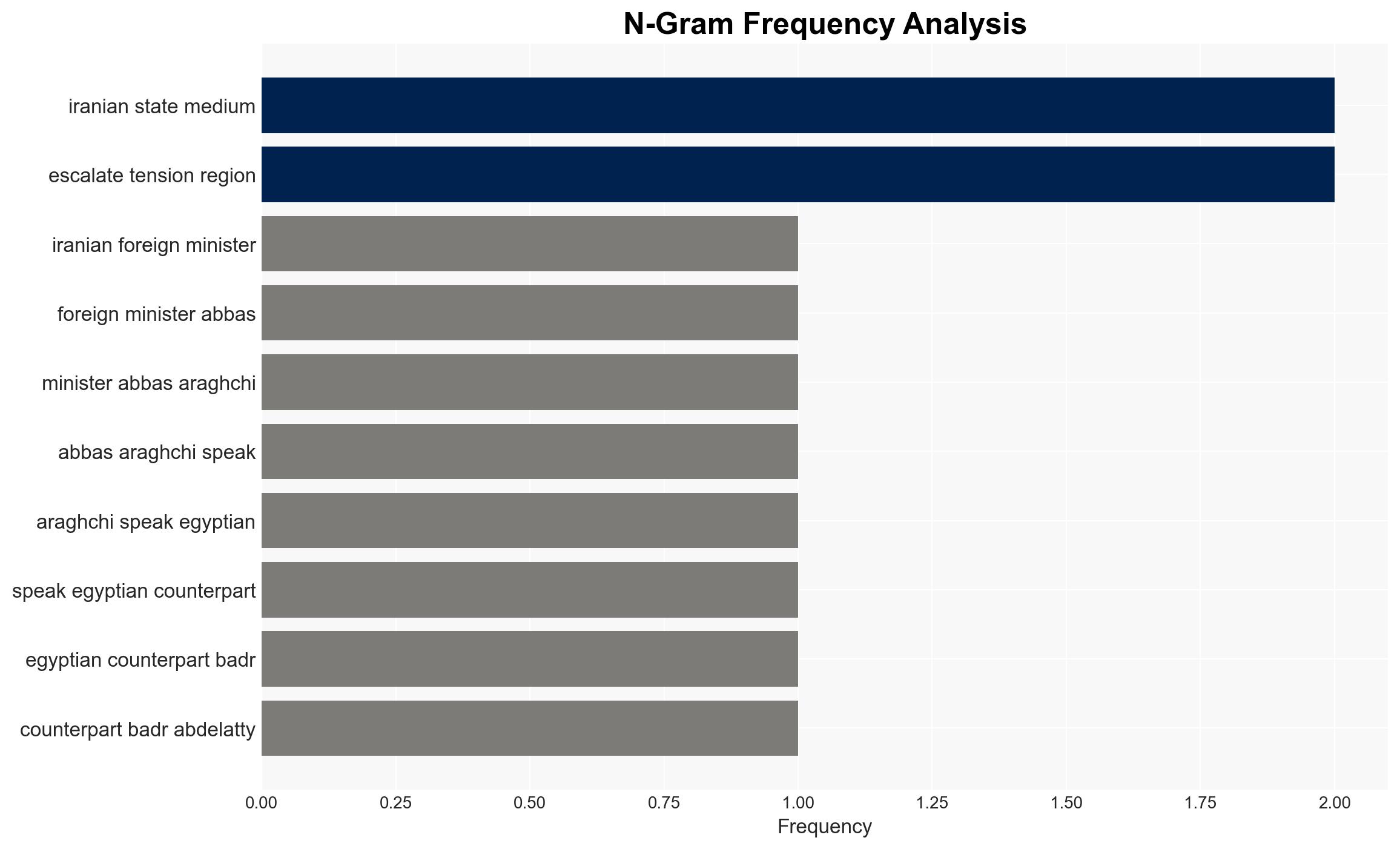Iran and Egypt hold talks centered on Gaza – The Jerusalem Post
Published on: 2025-04-10
Intelligence Report: Iran and Egypt hold talks centered on Gaza – The Jerusalem Post
1. BLUF (Bottom Line Up Front)
Recent discussions between Abbas Araghchi and Badr Abdelatty highlight a significant diplomatic effort to address escalating tensions in Gaza and the broader West Asia region. The talks underscore a potential shift in regional alliances and emphasize the urgency of establishing a ceasefire to prevent further conflict. This development is crucial for stakeholders involved in Middle Eastern geopolitics and requires immediate attention to leverage diplomatic channels for peace and stability.
2. Detailed Analysis
The following structured analytic techniques have been applied for this analysis:
General Analysis
The dialogue between Abbas Araghchi and Badr Abdelatty marks a pivotal moment in Iran-Egypt relations, which have been strained for years. The focus on halting Israeli actions in Gaza and establishing a ceasefire indicates a shared interest in regional stability. The inclusion of discussions on indirect talks between Iran and the United States suggests a broader diplomatic strategy to address multiple regional conflicts, including those in Lebanon, Syria, and Yemen. The involvement of other international leaders, such as those from France, Jordan, and the United States, further complicates the geopolitical landscape, presenting both opportunities and challenges for peace initiatives.
3. Implications and Strategic Risks
The ongoing conflict in Gaza poses significant risks to regional stability, with potential spillover effects into neighboring countries. The alignment of Iran and Egypt on this issue could alter existing power dynamics and influence future diplomatic engagements. The risk of escalation remains high if ceasefire efforts fail, potentially impacting global economic interests, particularly in energy markets. Additionally, the perception of US actions in Yemen as “aggression” by Iranian media could exacerbate tensions between Iran and Western powers, complicating diplomatic resolutions.
4. Recommendations and Outlook
Recommendations:
- Encourage multilateral diplomatic efforts to establish a ceasefire in Gaza, leveraging relationships with regional and global powers.
- Enhance intelligence-sharing mechanisms to monitor developments and preempt potential escalations.
- Consider regulatory adjustments to facilitate humanitarian aid access and support conflict resolution initiatives.
Outlook:
In the best-case scenario, successful diplomatic engagements lead to a ceasefire in Gaza and a reduction in regional tensions. The worst-case scenario involves a failure to reach an agreement, resulting in increased violence and broader regional instability. The most likely outcome is a protracted negotiation process with intermittent escalations, requiring sustained international attention and intervention.
5. Key Individuals and Entities
The report mentions significant individuals such as Abbas Araghchi and Badr Abdelatty, as well as entities like the governments of Iran and Egypt. The involvement of international leaders from France, Jordan, and the United States is also noted, highlighting the complex interplay of regional and global interests in the ongoing conflict.




